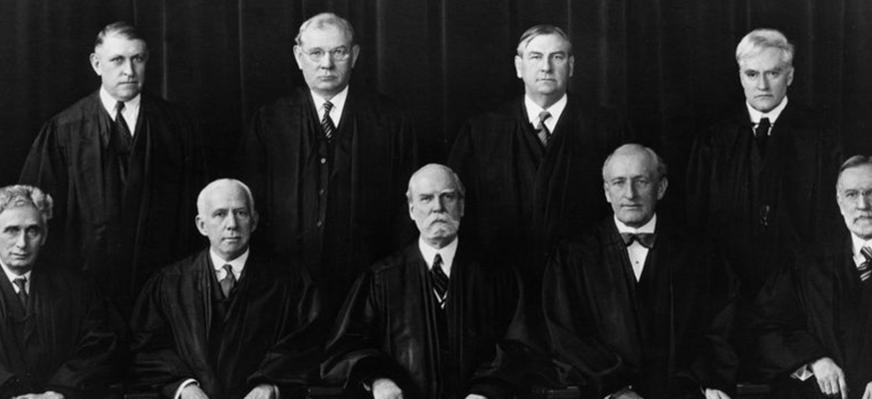As a supporter of the Convention of States movement, you already understand that the federal government has far exceeded its constitutional bounds. What the Framers envisioned as a small, limited national government has expanded beyond all reason, and everyday Americans are paying the price.
But do you know how that expansion happened? How has the federal government dramatically expanded its power over the last 100 years?
There are many factors, but bad Supreme Court decisions are at the top of the list. One especially egregious decision is known as Wickard v. Filburn. In this decision, the court interpreted the Constitution's "Commerce Clause" to give the federal government power over virtually everything in American life.
The Commerce Clause allows the federal government to regulate "interstate commerce," i.e., commerce that occurs between states. In Wickard, SCOTUS decided that "interstate commerce" actually means "all commerce."
Writing in National Review, Kevin D. Williamson breaks down exactly how this decision played out -- and why it gives Washington "power without limitation."
The most infamous of the abuses of the interstate-commerce clause was blessed by the Court in the case of Wickard v. Filburn.
Among the economically illiterate superstitions that captivated the government of Franklin D. Roosevelt was the idea that American businesses were simply too productive, and it therefore ordered limits on the production of certain products, including wheat, in order to save Americans from the terrors of material abundance and low prices. Roscoe Filburn, a farmer in Ohio, ignored the federal limits on wheat production, because he was not involved in interstate commerce — the wheat was being consumed on his own farm rather than sold on the open market.
But the feds disagreed and Filburn lost his case, with the Court creating, ex nihilo, an outrageously broad interpretation of federal powers: Filburn’s actions were neither interstate nor commerce, but the Court reasoned that they might produce a “substantial economic effect on interstate commerce,” if, for example, Filburn’s growing his own wheat kept him from buying wheat commercially grown in Pennsylvania.
As Williamson continues, the Wickard decision allows the federal government to regulate virtually anything -- because anything can be construed as having an "effect" on interstate commerce.
Wickard’s standard creates a federal power without limitation: Washington could, under this reasoning, superintend parallel-parking rules in Tuscaloosa, Ala., under the theory that a car parked ten inches from the curb rather than six inches might interfere with an Amazon delivery van and thereby exert a “substantial economic effect on interstate commerce” at least as great as Roscoe Filburn’s.
Conservatives might reasonably hope for the current Supreme Court to rule in their favor in single, isolated cases. But the Court will never address the root of the problem in Washington. They'll never rule to overturn cases like Wickard and prohibit the federal government from regulating things like healthcare or education or environmental policy.
There is only one other way to nullify bad Supreme Court decisions. Constitutional amendments can overturn court precedent, but Congress will never propose the amendments we need to rein in federal power. That's why the people and the states must come together to call the first-ever Article V Convention of States.
A Convention of States can propose constitutional amendments that overturn cases like Wickard and prohibit the federal government from regulating commerce within state boundaries. It can also propose amendments that limit Congress's authority under the General Welfare Clause, cap federal spending and taxation, and limit the terms of office for federal officials.
The Framers knew that one day the federal government would try to destroy the Constitution's bounds. They gave the people and the states a powerful recourse in Article V -- now it's time to use it.


